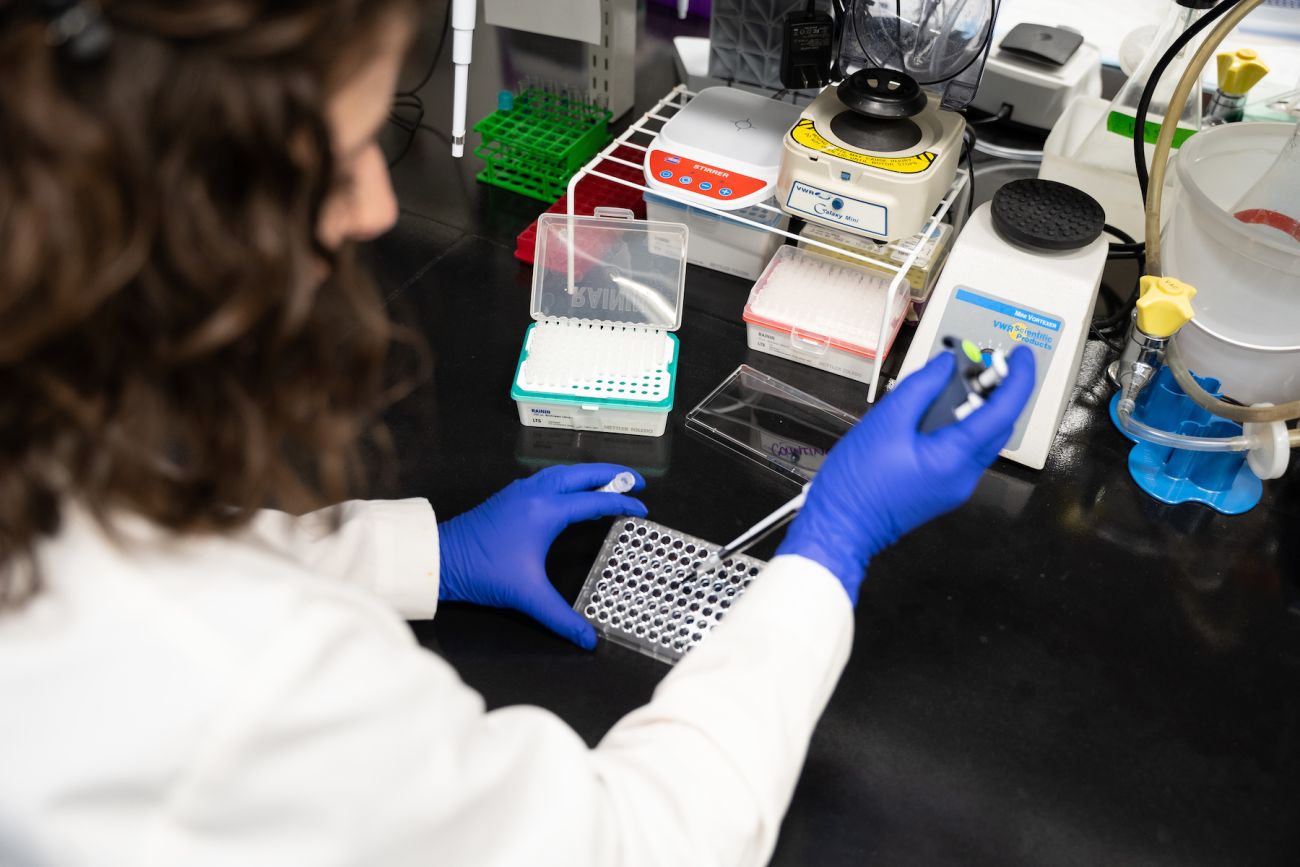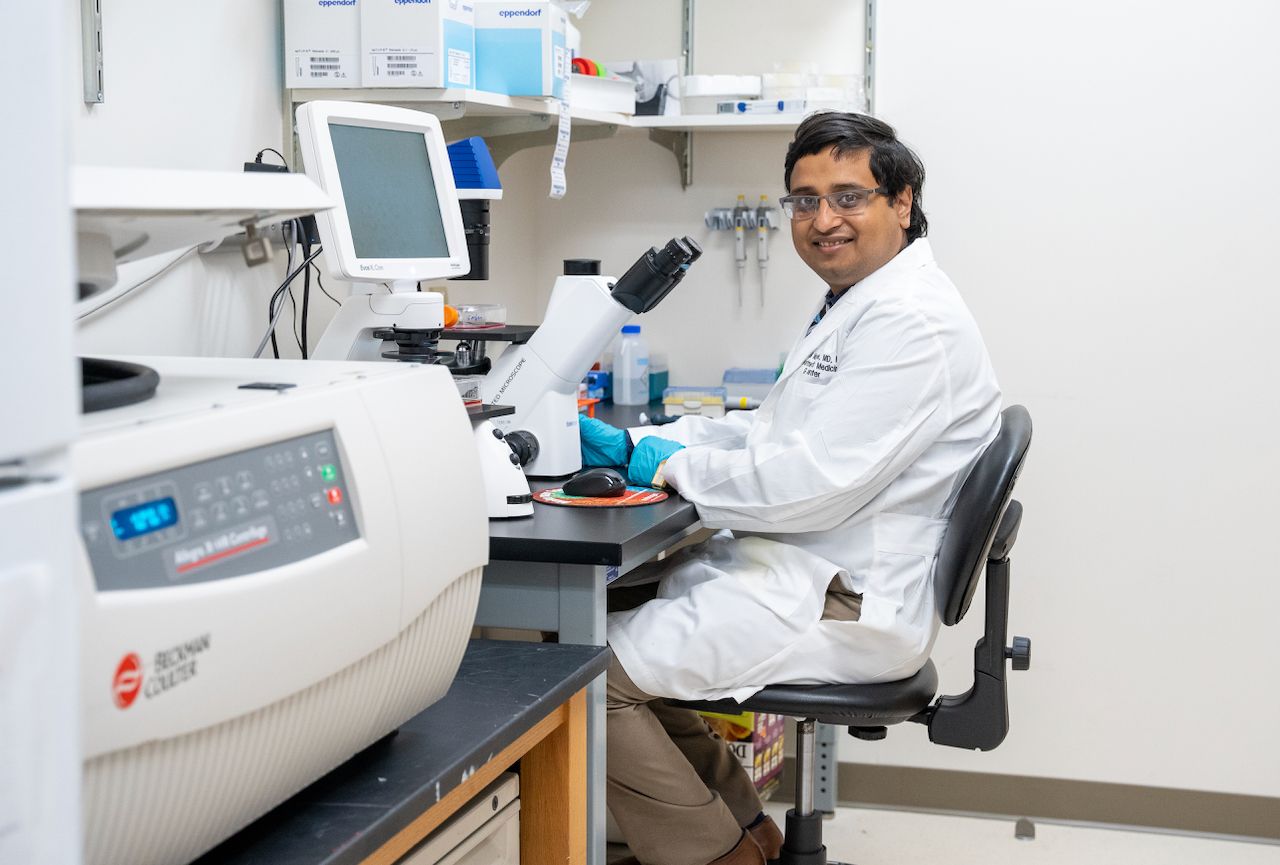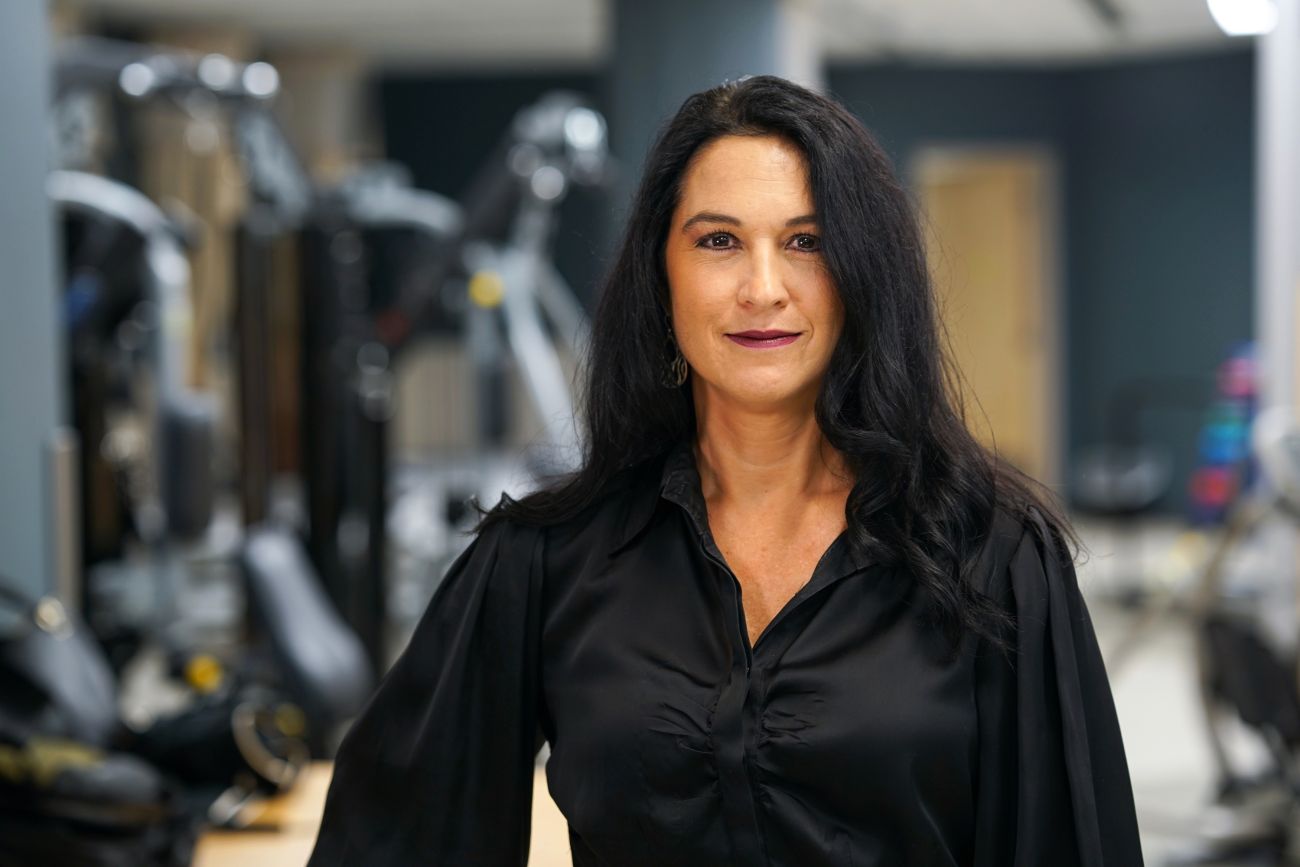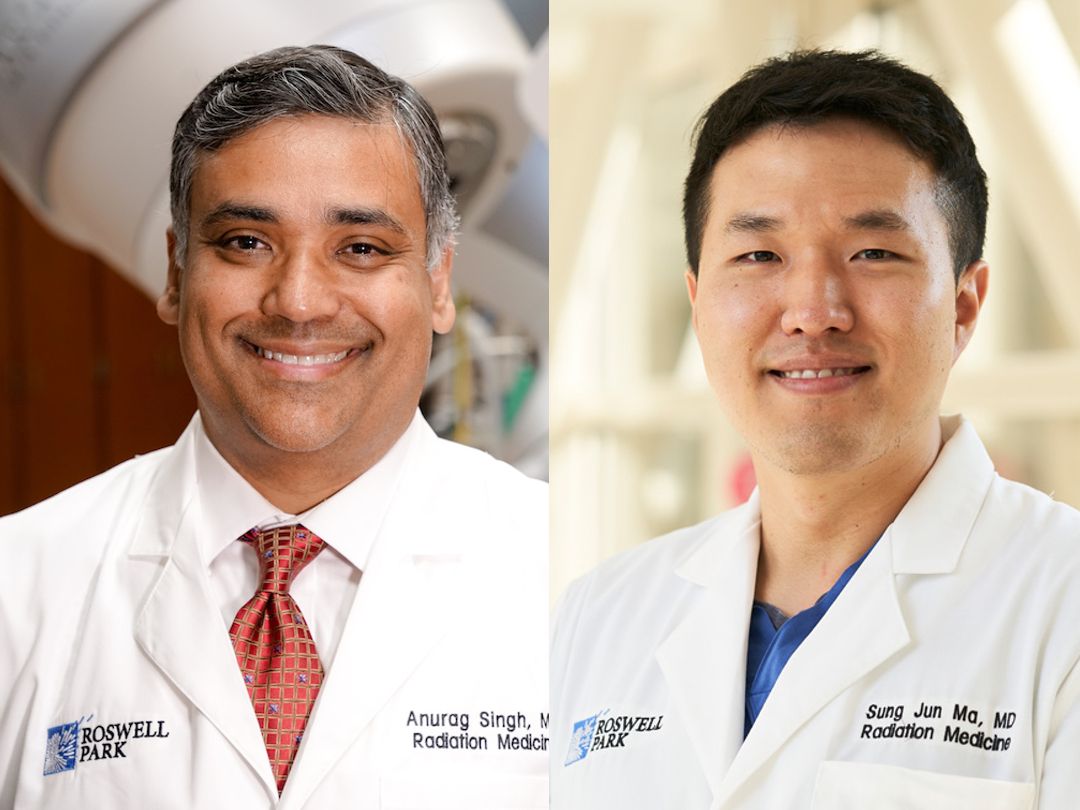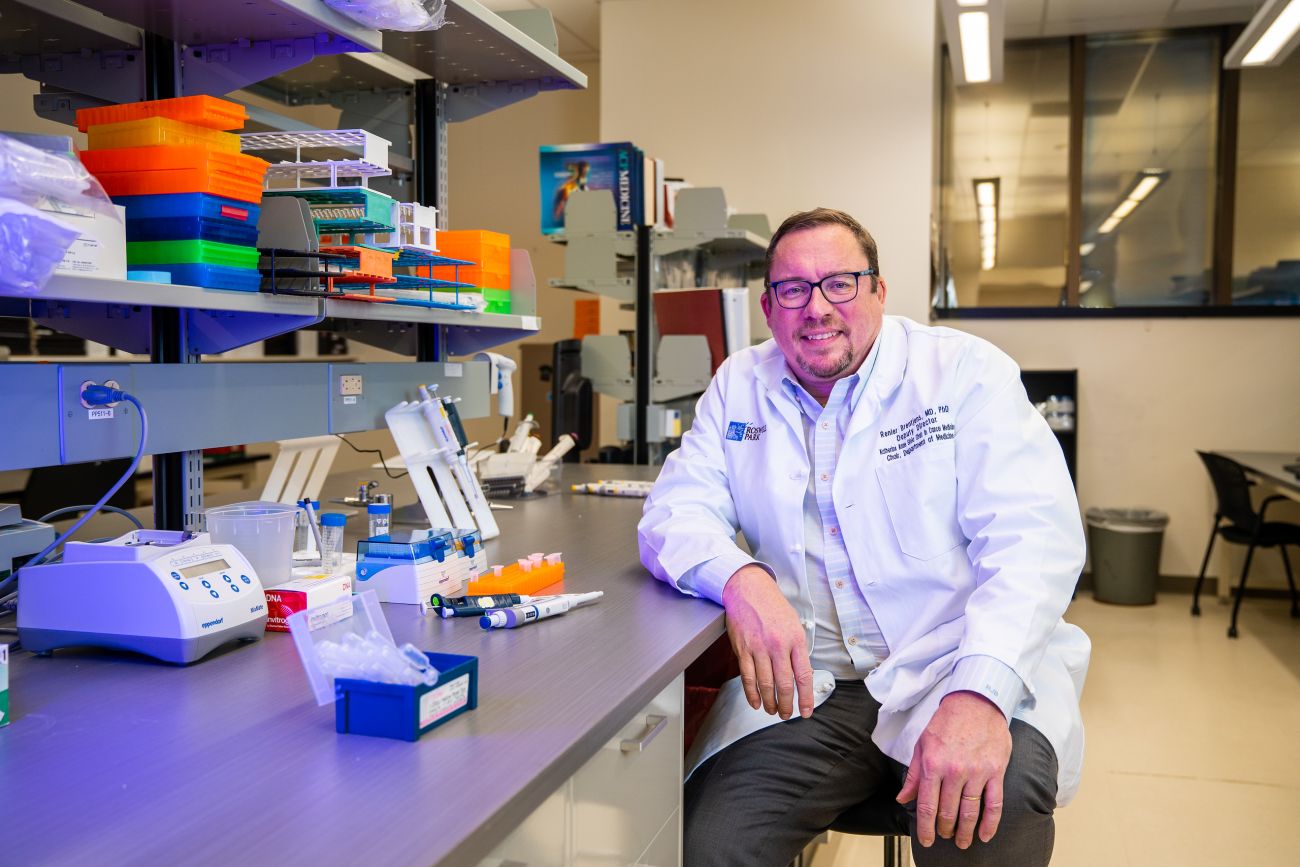Research has always been a cornerstone at Roswell Park Comprehensive Cancer Center, all the way back to the center’s founding as the first institution in the world dedicated to cancer research.
When the center was founded, in 1898 by Dr. Roswell Park, it was with the belief that bringing together scientists and researchers of different backgrounds and specialties could be essential in finding new tools and treatments in the fight against cancer.
This groundbreaking work continues today, with innovations in treatment and the development of new therapies that can improve a patient’s quality of life while helping them fight their individual cancer.
For National Cancer Research Month, take a look at some of the recently published research from Roswell Park’s nationally recognized team of scientists and clinicians that aim to prove or change the standards of care:
2-Year Follow-Up Shows Sotorasib Significantly Prolongs Survival in Patients with Non-Small Cell Lung Cancer
Grace Dy, MD, Director of Thoracic Medicine Translational Research, recently presented the results of a two-year study in patients with non-small-cell lung cancer which indicates that using the targeted therapy sotorasib (Kumakras) lived an additional two years after enrolling in a large clinical trial of the therapy, a significant improvement over results from other existing therapies.
“The two-year survival is a landmark observation,” Dr. Dy says. “We also found that there were long-term benefits in nearly a quarter of patients, meaning these patients had progression-free survival greater than 12 months. That is much higher than we anticipate with traditional chemotherapy.”
FTD/TPI Plus Oxaliplatin Well Tolerated but Not Broadly Effective as Treatment for Esophageal Cancer
Sarbajit Mukherjee, MD, MS, an Assistant Professor of Oncology, has demonstrated that a new combination of chemotherapy treatments -- trifluridine/tipiracil (FTD/TPI) and oxaliplatin -- can help improve outcomes for patients with esophageal cancer. While not all patients treated with this combination before standard chemotherapy has improved outcomes, Dr. Mukherjee and his team continue to work to identify subgroups of patients for which this treatment might be most successful.
“Achieving pathologic complete response (pCR) is associated with improved overall survival. Therefore, several studies have used induction chemotherapy before chemoradiation to improve pCR rates but saw mixed results,” he says.
Study: Healthy Lifestyle Reduces Risk of Recurrence and Death in High-Risk Breast Cancer Patients
High-risk breast cancer patients who adopt a healthy lifestyle after treatment, and who most closely followed the cancer prevention guidelines released by the American Institute for Cancer Research and the American Cancer Society before, during and after treatment, reduce their risk of cancer recurrence by 37% and have a 58% reduction in their risk of death from the disease, according to new research from Rikki Cannioto, PhD, EdD, MS, in Roswell Park’s Department of Cancer Prevention and Control.
“The literature suggests that all these factors are associated with cancer risk, but until now we did not know whether they were also associated with improved survival outcomes in people who already have cancer,” she says.
Low Income Linked to High Recurrence Risk, Poorer Survival in Women with ER-Positive Breast Cancer
Access to transportation and living in a lower-income home both can contribute to lower overall survival in patients with estrogen receptor-positive breast cancers, and those patients are also more likely to have more aggressive tumors, according to new research from Anurag Singh, MD, Director of Radiation Research and Co-Leader of the Cancer Stress Biology Program at Roswell Park, and Sung Jun Ma, MD, a resident physician, who served as lead author on the paper.
New CAR T-Cell Strategy Highly Effective Against Small Cell Lung Cancer in Preclinical Study
CAR T-cell therapies have, so far, been limited to blood cancers, but new research led by Renier Brentjens, MD, PhD, Deputy Director and the Katherine Anne Gioia Endowed Chair in Cancer Medicine at Roswell Park, has found a new approach to CAR T-cell therapy showing great promise against small cell lung cancer in a preclinical study. Using a two-pronged strategy, and upgrading CAR T-cells to be “armored” and capable of expressing another surface-level protein molecule that regulates the immune system’s response to disease, the “living drug” not only survived and multiplied longer in the test subject, there was further improvement in survival when the treatment was combined with an immune checkpoint inhibitor.
“This is a next-generation CAR T cell,” Dr. Brentjens says. “Now that we’ve shown this technology to be effective, we’re eager to advance the work to clinical-stage research assessing how effective this approach may be in cancer patients.”
Our doctors and researchers are dedicated to advancing cancer care and developing new therapies to provide our patients with the best options and innovations. From developing the first prostate-specific antigen (PSA) test in the 1970s to being on the leading edge of immunotherapies that help use a patient’s own immune system to fight cancer, Roswell Park will remain a leader in cancer research for the next 150 years.
